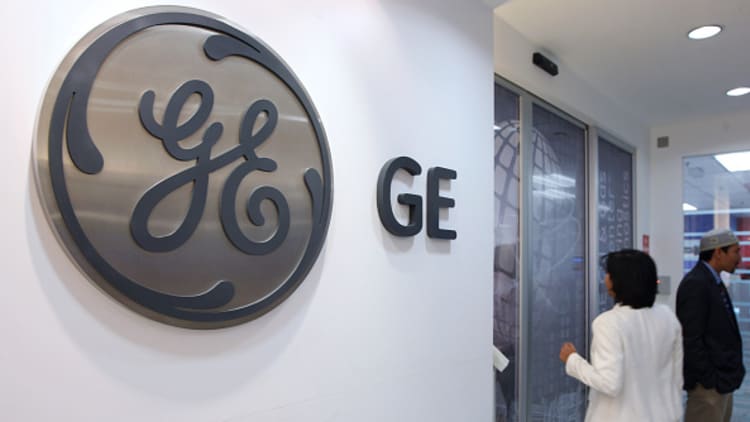General Electric is slimming down, but it's holding on tight to its aviation business, and it has plenty of reasons to do so.
The aviation business is booming, with Boeing and its European rival Airbus — the two main manufacturers of passenger jets — enjoying record orders for passenger planes, thanks to low interest rates, a growing economy and record numbers of travelers taking to the skies each year.
The industrial conglomerate on Tuesday said it would spin off its health-care business and sell its stake in oilfield services company Baker Hughes, an effort to improve its balance sheet and win back shareholders who have sent the company's stock down 50 percent over the past 12 months. GE said it would focus on its aviation, power and renewable energy businesses.
GE shares were up more than 8 percent in early afternoon trade, on pace for their best day since April 20, 2015. Since January, it has declined 21 percent, cutting its market capitalization to $120 billion.
GE is the world's biggest manufacturer of jet engines for the globe's most common airplanes. It makes both its own engines and some of the most widely flown under its joint venture, CFM International, with France's Safran. GE, including its joint venture, had about a 70 percent share of engines that power narrow-body jets, the most widely produced airplanes. GE's aviation business competes with United Technologies unit Pratt & Whitney and Rolls Royce.
"If you’re No. 1 in a business that’s growing you keep it," said Richard Aboulafia, vice president at analysis firm the Teal Group.

GE's aviation business, the second largest after its power unit, brought in $27.4 billion last year, more than 22 percent of GE's revenue, according to a company filing. The aviation business doesn't just sell jet engines — it generates revenue by selling spare parts and repairing the engines.
Still there are risks, said Jeff Windau, an industrial sector analyst at Edward Jones. "Commercial aviation is economically sensitive business," he said. "Right now there are backlogs and things are going very well but if there's an economic downturn that could put pressure on demand in that business."
Higher fuel bills are painful for airlines but it could help GE's business because airlines are looking to reduce costs with more next-generation fuel-efficient engines and aircraft, Windau said.


